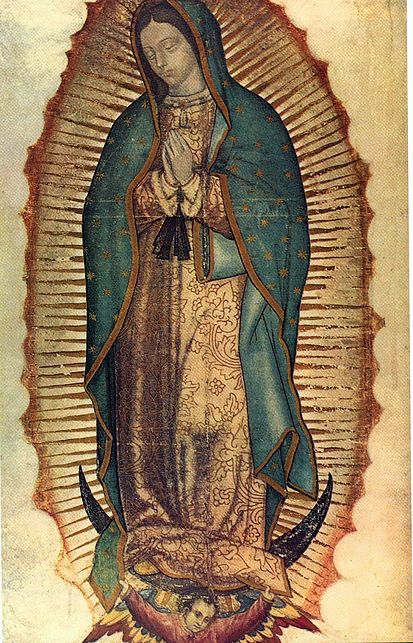For I will leave in the midst of you a people humble and lowly. They shall seek refuge in the name of the Lord – the remnant of Israel (Zeph. 3:12).
Our Gospel text this Sunday is very familiar to us. The Beatitudes are sometimes referred to as the Charter of God’s Kingdom, a magna carta of sorts given to us by Our Lord, who in the Gospel of St. Matthew is presented as the new Moses who gives us a new law. Like Moses who gave the Israelites the Ten Commandments, ten words that changed the world, Christ Our Lord gives His people ten invitations to perfect love, words that transform minds and hearts and by extension, sanctify the world with the presence of God.
Jesus is not only the new Moses but God Himself who inscribes the Law of His Sacred Heart not on stone tablets but on the very hearts of His disciples. What we are given in the Beatitudes is more than negative commandments that forbid sin, as the first Decalogue largely was. The Beatitudes invite us to live the blessedness of God’s own life of light and love and in the perfection of that life, so that we may experience already here on earth something of the life of Heaven. This is why it is said of the Beatitudes that they are heaven in our hands. While we keep the commandments, we live the Beatitudes.
Then he began to speak, and taught them, saying: ‘Blessed are the poor in spirit, for theirs is the kingdom of heaven’. These words of introduction have a solemn tone to them, implying that something out of the ordinary is about to be communicated. This is surely the case. The text literally says: opening his mouth he began to teach them, saying….The words that follow are uttered by God Himself. Out of the abundance of the heart the mouth speaks (Mt. 12:34). The Beatitudes reveal to us the very Heart of God and they reveal a new logic by which our lives are governed. The poor and those who mourn are blessed, the meek inherit the earth; and man does not live by bread alone but by every word that proceeds from the mouth of God (Mt. 4:4).
Blessed are the poor in spirit, for theirs is the kingdom of heaven. This, the first of the Beatitudes is often misunderstood and yet, because it is the first in a series that reveal to us something of the Heart of God Himself, is preeminent if only because of chronology. Poverty of spirit is humility of heart; and humility is quite literally, the ground of our being. To live humbly is to know one’s place in God’s godly order. Derived from humus, the Latin word for earth, humility of mind and heart enables us to approach everything and everyone, and most especially God and the things of God with the proper disposition of respect and reverence.
The Beatitudes invite us to make our own the mind of Christ (1 Cor. 2:16); and in so doing, to conform ourselves to the Sacred Heart of Jesus. In the course of His preaching Our Lord drew attention to the absolute necessity of the first and the third beatitude. ‘Take my yoke upon you, and learn from me; for I am gentle and lowly in heart, and you will find rest for your souls. For my yoke is easy, and my burden is light’ (Mt. 11:29-30). Humility and gentleness are always the hallmark of the faithful disciple of Christ. Whatever our state in life, we should always be humble before God and one another; and always gentle in our dealings with one another.
It is evident that what Our Lord calls us to imitate can neither be legislated as the Ten Commandments are, nor imposed; yet the Beatitudes propose everything because they invite us to mold our minds and hearts according to Heart of God Himself. Good character cannot be forced on people. This is no less the case in society. Good character must be formed and for this to take place, one needs good models. An awareness of the importance of good character puts an obligation on us who are older to provide the younger members of our community with a good example. Our common desire and effort to follow Our Lord by heeding His counsels fashions us into a people humble and lowly…[who] seek refuge in the name of the Lord – the remnant of Israel (Zeph. 3:12). The blessedness of those whose lives are governed by God’s logic and His own inner life of beatitude are imbued with a joy that is altogether different from the happiness that comes even with an abundance of the world’s goods. It is not difficult to be tempted by passing things or to base our security on them alone. This is why Our Lord repeatedly warns us about the dangers posed by the world: For what will it profit a man, if he gains the whole world and forfeits his life? (Mt. 16:26).
The Beatitudes invite us to tread the path that Our Lord Himself did; and through His example we are strengthened and encouraged to live in imitation of Him. The Beatitudes are the means by which we are sanctified and conformed to Our Lord, and as we mature in our discipleship, a time must come for all of us when we assent to the truth of Our Lord’s words and we begin to live by this new logic. Only when this has taken place and we continue to conform ourselves to Our Lord’s Heart are we able like Him, to offer our bodies as a living sacrifice, holy and pleasing to God; this being our true and proper worship. So we do not conform ourselves to the pattern of this world but are transformed by the renewing of our mind (Cf. Rom. 12:1-2).
The renewal of our mind is brought about when we listen attentively, with the ear of our heart to Our Lord’s word of truth and humbly allow this word to take root in us. This is what we endeavour to do Sunday after Sunday; mindful that we can never exhaust the wisdom of God’s word of truth. Some may dismiss it and others may ignore it; but we receive it as our very life for it comes from the mouth of God. Despite the strident and loud demands that God’s inerrant word of truth be subject to man’s latest whims and fancies, we choose all the more to be attentive to the instruction that we receive in the sacred liturgy, choosing rather to remain a people humble and lowly [who] seek refuge in the name of the Lord – the remnant of Israel (Zeph. 3:12). Perhaps it has always been so, yet in the turmoil and cacophony of the chaos all around us it seems that at the present time there is a remnant, chosen by grace (Rom. 11:5). In His mercy may God grant us the courage and strength to persevere in this grace.











